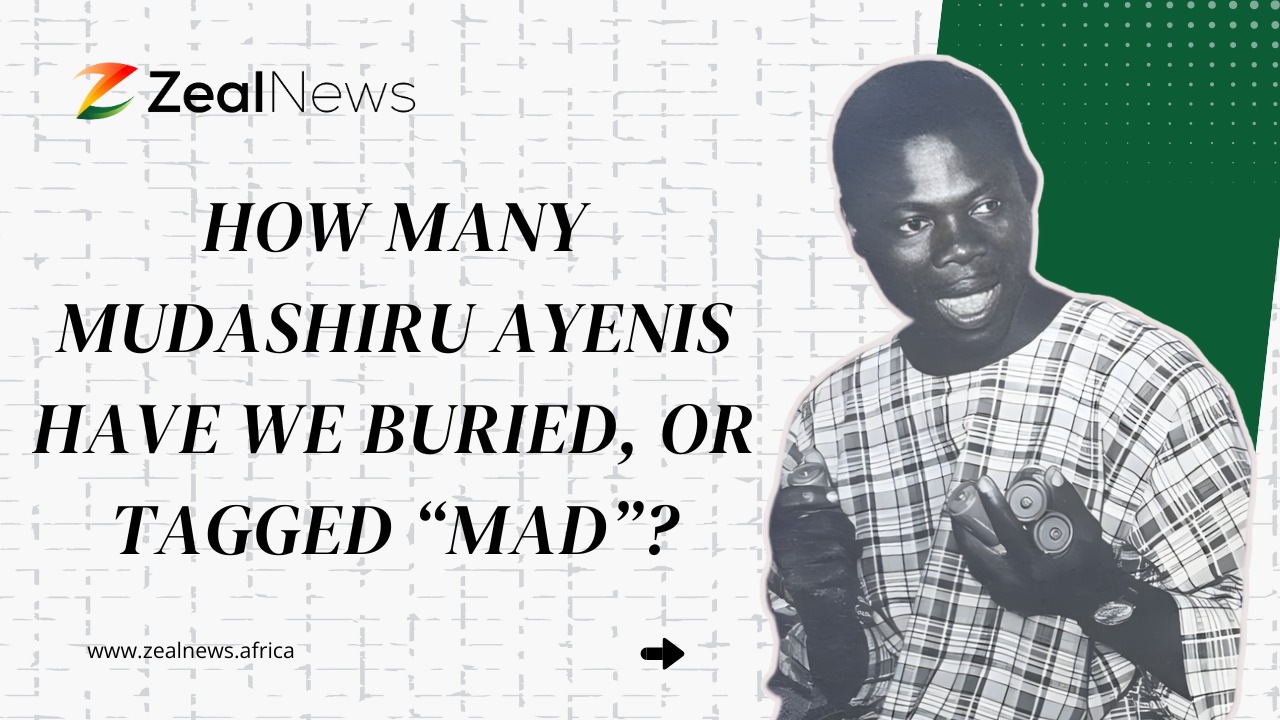OPINION: Is Gen Z the Most Informed Yet Most Confused?

The Age of Knowing Without Understanding
At no other time in history has a generation had access to so much information, so quickly, and so easily. The average 21-year-old today carries in their pocket a device that connects them to the total of human knowledge. With a few taps, they can pull up the latest climate report from the UN, watch a protest unfold live in Tehran, or learn about string theory from a Nobel Prize winner. This generation, born into the digital era, has become a node in an infinite web of content, commentary, and code.
And yet, beneath the brilliance of this hyper-connectivity lies a haunting paradox: Gen Z might also be the most intellectually fragile and epistemically confused generation yet.
Despite their fluency in hashtags and headlines, many young people today struggle with critical reasoning, historical context, media literacy, and philosophical depth. In classrooms, lecture halls, and social media timelines, we see a disturbing pattern—intellectual performance without intellectual substance. It begs the question: Are we raising a generation that knows everything but understands nothing?
The Rise of the "Google Scholar"
A study by the Stanford History Education Group in 2021 found that 96% of high school students in the U.S. couldn’t distinguish between a real news story and a sponsored ad. The implication is global: digital natives often lack digital discernment. Their ability to find information is unparalleled, but their ability to evaluate it is stunningly underdeveloped.
Search engines have become intellectual crutches. The term "Google it" has replaced genuine curiosity. Rather than struggling with a problem, discussing it, or contemplating its implications, the default response is to seek an instant answer. As a result, thinking is being outsourced.
Knowledge is no longer something we earn through study or contemplation. It is something we skim, screenshot, and regurgitate. What remains is a generation of self-proclaimed "experts" who, ironically, know very little beyond surface-level talking points.

Photo credit: Pinterest
The TikTokification of Thought
TikTok, YouTube Shorts, and Instagram Reels have become modern-day universities. Ideas are broken down into 30-second segments, simplified into catchy narratives, and packaged for emotional virality. Social justice, sexuality, neurodivergence, capitalism, race, trauma—topics once debated in graduate seminars are now reduced to digestible content for dopamine-starved audiences.
This isn’t merely about distraction. It’s about the collapse of depth.
Philosopher Byung-Chul Han, in his work The Burnout Society, writes that contemporary life has moved from a "disciplinary society" to an "achievement society," where individuals are self-exploiting, hyper-productive, and overstimulated. Gen Z embodies this shift. They are not lazy, as often claimed. They are over-informed but under-anchored. In the rush to consume more, reflect less, and perform identity online, many are experiencing intellectual burnout before they’ve even formed a stable worldview.
When Everyone Is a Philosopher (But No One Reads Philosophy)
Social media platforms have democratized opinion. Everyone is a critic. Everyone has a platform. But without the grounding of education, introspection, and dialogue, this abundance of voices has created a crisis of epistemology: how do we know what we know?
Many Gen Z-ers can quote Audre Lorde or Frantz Fanon, but few have engaged deeply with their texts. They invoke bell hooks in Instagram captions but haven’t read Ain’t I a Woman. There’s a difference between citation and comprehension. Between rhetoric and philosophy.
The Nigerian author Chimamanda Ngozi Adichie warned of "the danger of a single story." Gen Z now faces the danger of single-sentence thinking. The allure of appearing intelligent, empathetic, and “woke” has outpaced the practice of disciplined thought. Intellectual posturing has replaced intellectual patience.
SUGGESTED READ: Afro Blazers Series (Part 12): Chimamanda Ngozi Adichie – The Pen That Rewrote Africa
The Algorithm as God
Perhaps the most insidious factor at play is the role of algorithms in shaping what Gen Z consumes and believes.
Platforms like TikTok, Instagram, and X (formerly Twitter) don’t just feed content—they curate reality. Two young people searching for the same issue may receive entirely different ideological perspectives, shaped by their past behavior, geographic location, and digital footprint.
This creates epistemic silos, where individuals are convinced of their own objectivity, unaware that they are viewing the world through an algorithmically-generated tunnel. Instead of exposure to diverse ideas, Gen Z is increasingly confined to ideological echo chambers that deepen confirmation bias and polarize their thought.
In such a world, what hope is there for intellectual humility? For nuance? For the democratic exchange of ideas?
Trauma as Identity, Diagnosis as Personality
Another troubling trend is the medicalization of identity. Mental health awareness, long overdue, has morphed into something performative.
Terms like "gaslighting," "trauma-bonding," "anxious attachment," and "neurodivergence" are now part of Gen Z’s everyday vocabulary. While destigmatizing psychological suffering is vital, the commodification of therapy language has led to a culture where diagnosis becomes an identity.
“I am Bipolar.” Oh, please, shut up!
The way it's so easy to attach names to every little behaviour, without proper diagnosis.
Self-awareness has been replaced with self-labeling. Every interpersonal conflict is now abuse. Every failed relationship is evidence of a disorder. Every emotion is pathologized. Instead of encouraging resilience and introspection, the discourse often promotes victimhood as a brand.
In the long run, this leads to stunted emotional development. Genuine mental illness gets trivialized. And collective conversations become less about growth and more about grievance.

Photo credit: Pinterest
But Is It Really Their Fault?
It’s easy to blame Gen Z. To call them fragile, ignorant, or narcissistic. But this crisis didn’t emerge in a vacuum. It is the result of decades of institutional failure.
Education systems across the world, particularly in Africa, have not evolved. They still prioritize memorization over critical thinking. Most public schools do not teach logic, debate, or media literacy.
Parents and caregivers, busy surviving economic and political instability, outsourced emotional and intellectual nurturing to screens.
SUGGESTED READ: Are African Parents Ready for Gen Z? (OPINION)
Societies, driven by capitalist logic, taught children to value performance over depth, branding over being. And now, we are surprised by the consequences?
What Then Must We Do?
The task before us is not to shame Gen Z, but to challenge them with love. We must dare them to think better, deeper, slower. To read full books, not just quotes. To ask more questions than they answer. To understand before they argue.
To cut this short, what I’m saying is that if this generation is to thrive—not just survive—we must begin to reclaim:
Reading. Not skimming. Not summarising. Reading whole books. Reading slowly.
Thinking. Not tweeting. Not performing. But sitting with complexity.
Context. History. Theory. Grounding. The roots behind the rage.
Nuance. The space between “yes” and “cancelled.” The grace to evolve.
Silence. Not every opinion must be shared. Not every moment needs noise.
We need to raise thinkers, not just talkers. Builders, not just influencers. Citizens, not just consumers.
But more importantly, Gen Z must realize that their power lies not in how fast they absorb information, but in how courageously they interrogate it.
Conclusion: The Wisdom Revolution
Every generation faces a central crisis. For the Boomers, it was war. For Gen X, it was disillusionment. For Millennials, economic precarity. For Gen Z, the crisis is epistemic overload.
They are drowning in data. But they can still swim toward wisdom.
If they can re-learn how to think, to pause, to reflect; this generation could be the most intellectually radical, socially transformative, and spiritually grounded in history.
But it will take more than hashtags.
It will take the courage to be still, the hunger to be wise, and the patience to truly understand.
Let them not be remembered as the generation that knew too much and understood too little.
Let them be the generation that finally chose depth over noise.
You may also like...
Super Eagles Fury! Coach Eric Chelle Slammed Over Shocking $130K Salary Demand!
)
Super Eagles head coach Eric Chelle's demands for a $130,000 monthly salary and extensive benefits have ignited a major ...
Premier League Immortal! James Milner Shatters Appearance Record, Klopp Hails Legend!

Football icon James Milner has surpassed Gareth Barry's Premier League appearance record, making his 654th outing at age...
Starfleet Shockwave: Fans Missed Key Detail in 'Deep Space Nine' Icon's 'Starfleet Academy' Return!

Starfleet Academy's latest episode features the long-awaited return of Jake Sisko, honoring his legendary father, Captai...
Rhaenyra's Destiny: 'House of the Dragon' Hints at Shocking Game of Thrones Finale Twist!

The 'House of the Dragon' Season 3 teaser hints at a dark path for Rhaenyra, suggesting she may descend into madness. He...
Amidah Lateef Unveils Shocking Truth About Nigerian University Hostel Crisis!

Many university students are forced to live off-campus due to limited hostel spaces, facing daily commutes, financial bu...
African Development Soars: Eswatini Hails Ethiopia's Ambitious Mega Projects

The Kingdom of Eswatini has lauded Ethiopia's significant strides in large-scale development projects, particularly high...
West African Tensions Mount: Ghana Drags Togo to Arbitration Over Maritime Borders

Ghana has initiated international arbitration under UNCLOS to settle its long-standing maritime boundary dispute with To...
Indian AI Arena Ignites: Sarvam Unleashes Indus AI Chat App in Fierce Market Battle

Sarvam, an Indian AI startup, has launched its Indus chat app, powered by its 105-billion-parameter large language model...






